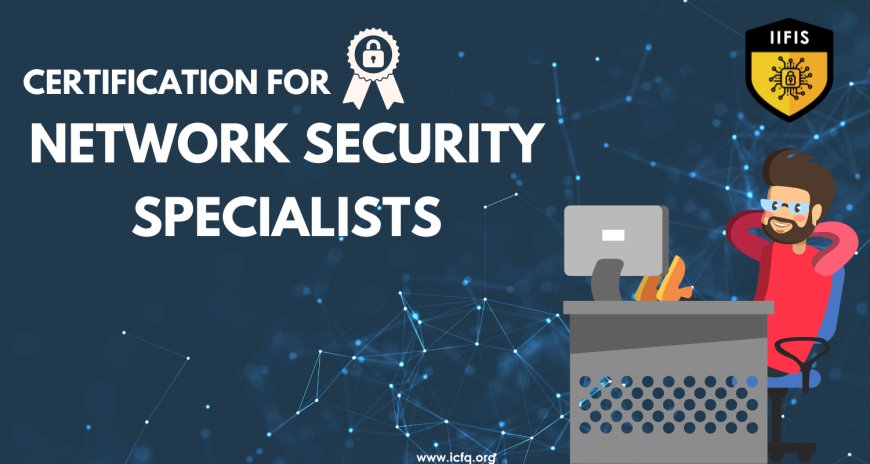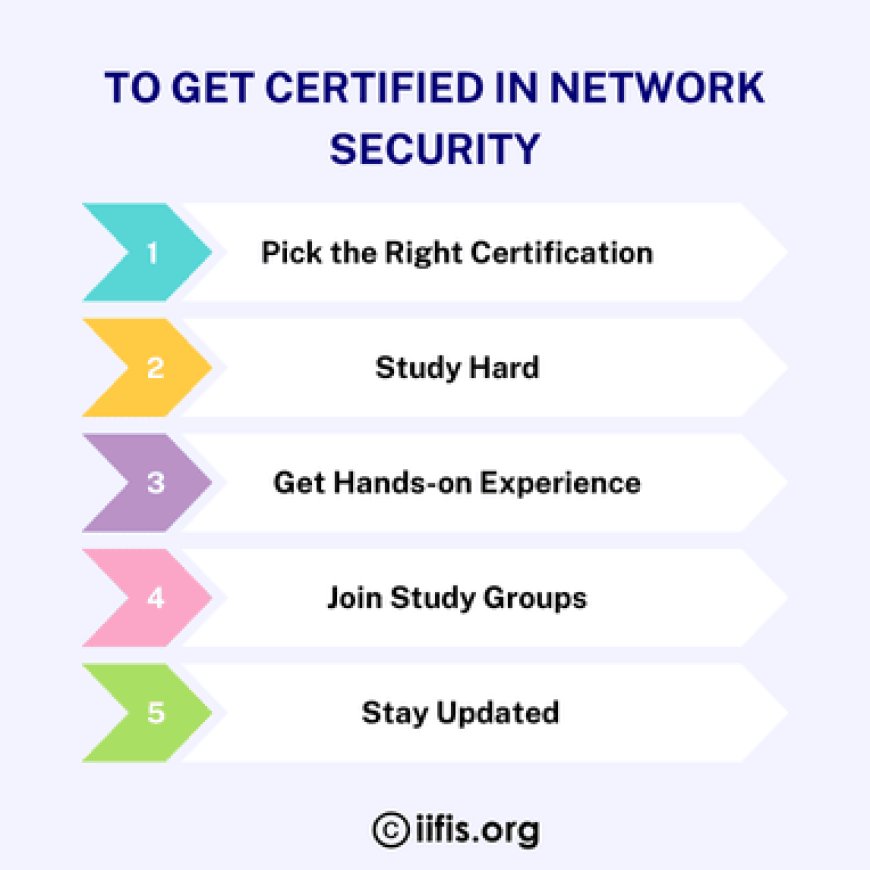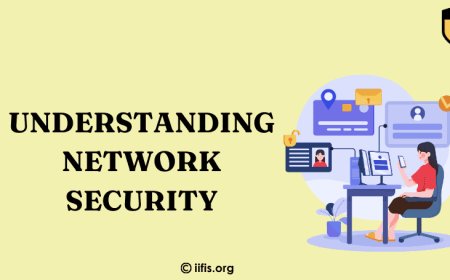Certification for Network Security Specialists
Boost your career with a Network Security Specialist Certification. Learn essential skills, prove your expertise, and improve your job opportunities in the growing field of network security.

When you're certified in Cyber Security, it shows that you're good at protecting digital stuff from bad guys. Information Security Certifications are like a roadmap that helps you get better at keeping important data safe from hackers. With Network Security Certification, you learn how to set up, run, and protect secure networks. And Application Security Certification makes sure that apps are built with strong security so they don't have as many holes for hackers to get through. Having a certification in network security isn't just a fancy badge. It's proof that you're serious about being great at what you do. Employers love seeing these certifications because they know they can trust someone who has them to keep their systems safe from all the tricky cyber threats out there.
As companies try to make sure their systems are safe from cyber attacks, they need people who are certified in network security. Whether you're just starting or trying to move up in your career, getting certified in network security is the first step to becoming an expert in keeping digital systems safe. Overall, getting a Certification for Network Security is a big deal. It shows that you've put in the work to become good at protecting digital stuff from bad guys. And in a world where online threats are always changing and getting more complicated, having that certification is like having a superpower that companies need.
Certification for Network Security: Understanding Roles and Credentials
Cybersecurity, professionals must grasp the ins and outs of network security. This means knowing about different certifications tailored to various roles within the field. Certifications for network security cover a range of credentials that show expertise in securing network setups, protocols, and data. Examples include Certified Information Systems Security Professional (CISSP) and Certified Ethical Hacker (CEH). These certifications give professionals the knowledge and skills they need to tackle evolving threats.
Information security pros, who are responsible for keeping sensitive data safe and minimizing risks, often pursue certifications like Certified Information Security Manager (CISM) and Certified Information Systems Auditor (CISA). These show they're good at managing security programs and checking systems for weaknesses. For those focused on offensive security, certified penetration testers go through tough training to find and exploit vulnerabilities in networks and systems. This helps organizations beef up their defenses against cyber attacks.
Starting in entry-level positions usually means getting certifications like Cybersecurity Associate or CompTIA Security+. These lay the groundwork for basic cybersecurity principles and practices. Meanwhile, certified cybersecurity managers have a key role in overseeing security strategies, managing risks, and making sure organizations follow industry rules and laws.
Understanding the Challenges of Getting Certified in Network Security
Getting certified in network security sounds like a great way to start a career in cybersecurity. But it's not all smooth sailing. There are a lot of tricky parts to figure out along the way. Let's take a look at some of the big challenges you might face:
1. Lots of Certifications to Choose From: When it comes to network security, there are tons of certifications out there like CISSP, CEH, CompTIA Security+, and more. Each one has its own rules for who can take it, how the test works, and what you have to do to keep the certification.
2. Technology Changes Fast: Cybersecurity is always changing. New threats pop up all the time, and technology keeps getting better and better. But that means certifications can fall behind. They might not cover the latest stuff you need to know to stay safe online.
3. Costs and Time: Getting certified takes a lot of time and money. You've got to study hard, maybe take classes, and then pass the test. And all that costs a pretty penny. Plus, you've still got your regular job and life to deal with at the same time.
4. Keeping Your Certification: Just passing the test isn't enough. You've got to keep up with it, too. That means doing more classes or retaking the test every so often. It's a lot of work to stay certified once you've got it.
5. Too Many Certified People: There are more and more people getting certified in cybersecurity every day. That's great for them, but it can make it harder for you to stand out. Some employers might not even care about certifications anymore because there are so many people with them.
6. Picking a Specialty: Cybersecurity covers a lot of different things, like finding problems in systems or fixing them after an attack. Some certifications cover a little of everything, while others focus on just one thing. It can be tough to decide which one is right for you.
So, while getting certified in network security can open doors for your career, it's not a walk in the park. You've got to navigate through all these challenges to make it to the other side.
Why are certifications important for network security professionals, and how can they overcome the challenges associated with obtaining them?
Certifications are like badges that show how good someone is at something, in this case, network security. They prove that you know your stuff, making it easier to find a job and earn more money. But getting certified isn't easy. It takes a lot of time and money, and the tests are tough. To make it through, you can join study groups, take online classes, and practice a lot. Also, sticking to a study schedule and getting advice from experienced people can help a ton. With hard work, you'll get certified and be well on your way to a better job in network security.
The Value of Certification for Network Security and Tips for Success
Getting certified in network security is important if you want to boost your career. These certifications show that you know how to keep computer networks safe from bad guys, which is a big deal for companies. Let's talk about why getting certified in network security is great and how you can do it.
Certifications like CompTIA Security+, Certified Information Systems Security Professional (CISSP), Certified Ethical Hacker (CEH), and Cisco Certified Network Associate (CCNA) Security are respected in the network security field. They prove that you understand how to keep networks safe from hackers and other threats. So, why are these certifications so valuable? Well, first off, they make you more attractive to employers. When a company sees that you're certified in network security, they know you have the skills they need to keep their data safe. Plus, certified professionals usually get paid more and have more job opportunities.
To get certified in network security, here are some tips:

1. Research and Pick the Right Certification: Look into what each certification requires and what kind of job opportunities it can open up for you. Choose the ones that fit your career goals and interests.
2. Study Hard: Take the time to understand what you need to know for the certification exams. Use online resources, practice tests, and study guides to help you learn.
3. Get Hands-on Experience: Try to get some real-world experience with network security. This could be through internships, projects, or jobs where you work with computer networks. It'll help you understand how things work in the real world.
4. Join Study Groups or Training Programs: Working with other people who are studying for the same certifications can be helpful. You can learn from each other and keep each other motivated.
5. Stay Updated: Cybersecurity is always changing, so it's important to keep learning. Stay up-to-date on the latest trends and technologies in the field.
So, getting certified as a network security expert is important in today's digital world. When you go through tough training and pass exams, it shows you know your stuff when it comes to keeping digital systems safe from bad guys. These certifications aren't just pieces of paper – they prove you're serious about keeping up with the latest in cybersecurity. As more and more companies worry about protecting their data and reducing risks, having certified network security experts on board is like having a secret weapon. Choosing to get certified not only boosts your career but also helps make sure our online world stays safe for everyone.
























